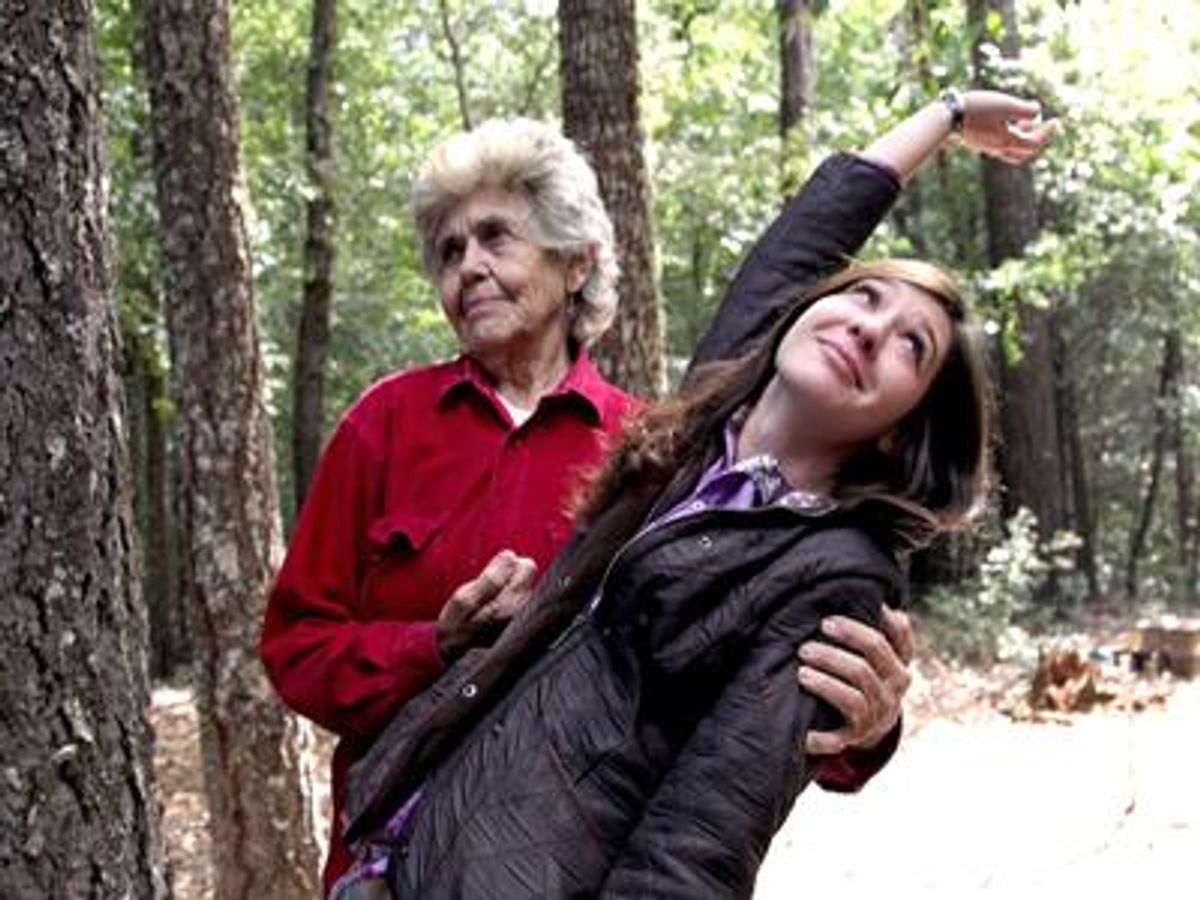Had Harvey Milk lived, he might have been the one to set the benchmark for full equality, something our LGBT movement has yet to do. Harvey did not survive and never had the opportunity, yet his legacy has provided inspiration to so many. What remains often untold and so profoundly significant is Harvey's absolute insistence on full inclusion within the gay movement itself.
"I think it's vital," he said, "that the minorities, the traditional ethnic minorities, and the gays and the feminists link together."
Harvey had met Sally and they did link together.
Sally Miller Gearhart, the famed feminist activist and scholar, fought alongside Milk to help defeat California's Proposition 6, known as the "Briggs Initiative" for its sponsor, state senator John Briggs. Proposition 6 sought to bar gay people from academic and teaching positions, playing on myth and fear that gays were out to recruit and hurt children.
Teaching at San Francisco State University, Sally was the first out lesbian to obtain a tenure-track faculty position in the United States, and together with Harvey cochaired the United Fund Against the Briggs Initiative, a rainbow coalition of minorities, feminists, and gay people that spear-headed many of the events in the fight against Briggs.
Sally famously debated John Briggs on TV together with Harvey. The debate was reenacted in the Hollywood feature film Milk, which in 2009 won two Academy Awards, including Best Original Screenplay. But Sally was not featured in the film.
In the actual TV debate, Briggs said, "We cannot prevent child molestation, so let's cut our odds down and take out the homosexual group [of teachers] and keep in the heterosexual group." Sally retorted, "Why take out the homosexual group when it is more than overwhelmingly true that it is the heterosexual men, I might add, that are the child molesters?" Briggs responded, "Well I believe that's a myth," and Sally jumped back by citing government data: "Ah, senator, the FBI, the National Council on Family Relations, the Santa Clara County Child Abuse and Sexual Treatment Center, and on and on and on [report this]."
Not only was Sally Gearhart's role ignored in the film Milk, but also these lines from the actual debate were modified and given to Harvey instead.
"That was not history, that was Hollywood," Sally told filmmaker Kristina Lapinski in an interview for the film Gay U.S.A. the Movie.
I am the coproducer of this documentary, which is scheduled to wrap after the United States Supreme Court rules on the Defense of Marriage Act and Proposition 8 cases. Throughout production, I sat in on the interviews with Sally. It became clear that she felt hurt at being snubbed by the film, but she was more concerned that the critical feminist role had been excluded from Milk.
As it happened, Sally was preparing to archive her memorabilia, and after the interview she showed us the numerous pictures and newspaper articles of her involvement with Harvey. It was clear Sally Gearhart's personal impact on the movement was inextricably woven with that of Harvey Milk.
Even though Anne Kronenberg, Harvey's campaign manager, was depicted in Milk, Sally saw her own omission from the film as a "rejection by gay men in Hollywood" of the importance of the feminists at the time and perhaps an indication of an ongoing marginalization of women in the movement.
Feminism and the gay movement were both developing in the '70s, and "feminism was part of Harvey's fight," noted Sally. Harvey's magnificent legacy is one in which he made it clear that all should be embraced and full inclusion would be imperative to the success of our movement.
It has been 34 years since Harvey Milk was assassinated, and women have yet to attain equality, and LGBT Americans remain with limited legal rights.
Surely the LGBT movement should take the added cue from President Obama's historic inauguration speech, in which he in essence calls for full equality, and inclusion: "We, the people, declare today that the most evident of truths -- that all of us are created equal -- is the star that guides us still, just as it guided our forebears through Seneca Falls and Selma and Stonewall," Obama said. "Our journey is not complete until our gay brothers and sisters are treated like anyone else under the law."
Embracing the Harvey Milk philosophy, the time could not be better than now, when we would be best served to fully realize the importance of feminists, as imperative allies, while we all move together in our quest for full equality.
MELANIE NATHAN is CEO of Private Courts Inc., a mediation and human rights advocacy firm specializing in LGBTI equality and international human rights. She is a blogger at www.oblogdeeoblogda.wordpress.com and coproducer of Gay U.S.A. the Movie.


















































































